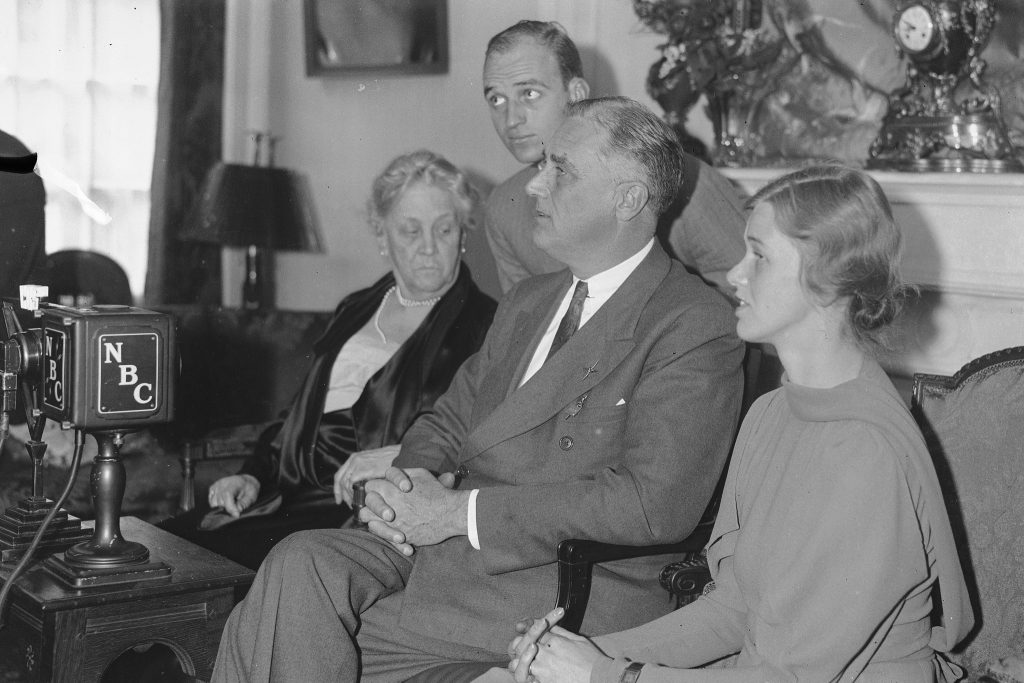By James Barron
Nov. 29, 2018

Franklin D. Roosevelt at his townhouse in Manhattan surrounded by family members on Nov. 9, 1932, after he won the presidency in a landslide election. On either side of him, from left to right: Sara Delano Roosevelt, his mother; James Roosevelt, his son; and Anna Eleanor Dall, his daughter. —Photo Credit: Associated Press
The historian Doris Kearns Goodwin stood in a place she had described in her most recent book.
“This was where he crawled,” she said.
“He” was a middle-aged man, Franklin D. Roosevelt. The place was the library in the Manhattan townhouse where he struggled to regain the use of his body — by literally crawling on the floor — after he was all but paralyzed by polio in 1921, when he was nearing 40.
Ms. Goodwin was there because of something that happened years later: Roosevelt sold the townhouse to Hunter College for $50,000. On Tuesday, during a celebration of the 75th anniversary of the moment the Roosevelts handed over the keys, Jennifer J. Raab, the president of Hunter, called it “surely the real estate bargain of the 20th century.” (Maybe, maybe not. That amount, in today’s dollars, would be $726,000, far less than a townhouse on the Upper East Side would probably go for now. One in the next block is on the market for $24.5 million, according to the real estate site Trulia.) …
Read more at:
https://www.nytimes.com/2018/11/29/nyregion/roosevelt-house-nyc.html
